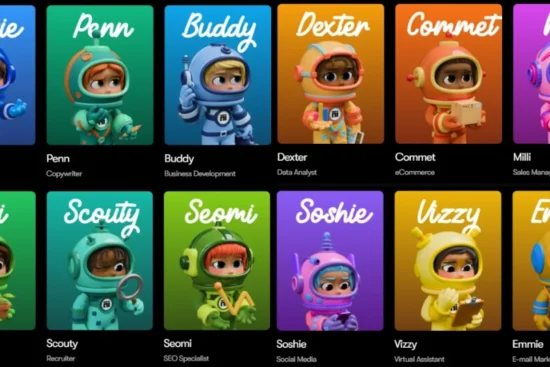
In recent years, technological advancements have paved the way for a groundbreaking concept known as the Metaverse. It represents a convergence of physical and digital realities, blurring the lines between our current world and an immersive digital landscape. In this blog, we will delve deep into the Metaverse, uncovering its potential, applications, and impact on our lives. Join us as we embark on a thrilling journey to the next frontier of digital reality.
Understanding the Metaverse
At its core, the Metaverse is a virtual, shared, and interconnected space that transcends traditional boundaries. It encompasses an array of digital platforms, simulations, and augmented realities where users can interact and engage with each other and computer-generated environments. This futuristic concept aims to provide a seamless blend of reality and imagination, offering a myriad of opportunities across various domains.
The Origins of the Metaverse
The term “Metaverse” was coined by the science fiction writer Neal Stephenson in his novel “Snow Crash” back in 1992. Although the idea remained confined to the realm of fiction for decades, recent technological advancements have breathed life into this visionary concept. Today, pioneers in the tech industry are actively developing the infrastructure and technologies needed to transform the Metaverse from fiction to reality.
Key Components of the Metaverse
The Metaverse consists of several key components, each playing a crucial role in creating a seamless and immersive digital experience. These components include:
- Virtual Reality (VR): VR technology enables users to enter and interact with a computer-generated environment that simulates real-world experiences.
- Augmented Reality (AR): AR overlays digital content onto the physical world, enhancing real-world experiences with virtual elements.
- Blockchain Technology: Blockchain forms the backbone of the Metaverse by ensuring decentralized ownership, secure transactions, and unique digital assets.
- Internet of Things (IoT): IoT devices play a significant role in bridging the gap between the physical and digital realms, enabling seamless data exchange.
Applications of the Metaverse
The Metaverse’s potential applications are vast and varied, with implications across numerous industries:
- Gaming and Entertainment: The gaming industry is set to be revolutionized by the Metaverse, creating immersive gaming experiences where players can interact, collaborate, and compete in a shared virtual space.
- Education and Training: The Metaverse offers a powerful platform for immersive learning experiences, allowing students to explore historical events, visit distant planets, and practice complex skills in a risk-free environment.
- Social Interactions: With the Metaverse, social interactions will transcend physical boundaries, bringing people together from all corners of the world, regardless of geographical constraints.
- Real Estate and Commerce: Virtual real estate within the Metaverse is becoming a hot commodity, paving the way for new business opportunities and virtual commerce.
The Challenges Ahead
As exciting as the Metaverse sounds, it also poses some significant challenges that need to be addressed:
- Privacy and Security: As users immerse themselves in the Metaverse, protecting their personal information and ensuring a secure environment becomes paramount.
- Digital Divide: Access to the Metaverse requires advanced technology, leaving behind those with limited resources and connectivity.
- Regulatory Concerns: The Metaverse’s decentralized nature raises questions about jurisdiction and regulation, requiring careful legal considerations.
The Future of the Metaverse
The future of the Metaverse looks promising, with potential innovations beyond our current imagination. As technology continues to advance, the boundaries between the physical and digital realms will further blur, redefining our perception of reality. Embracing this futuristic concept will revolutionize how we work, learn, and interact with each other.
Final Words
In conclusion, the Metaverse stands as the next frontier of digital reality, promising to reshape our world in ways we could only dream of. As we venture into this uncharted territory, we must embrace the possibilities it presents while addressing the challenges it poses. Let us step into the Metaverse with open minds and embark on a journey that will redefine our understanding of reality.
Commonly Asked Questions
Q1: How will the Metaverse impact the gaming industry?
A1: The Metaverse will revolutionize gaming, offering immersive experiences where players can collaborate, compete, and socialize in shared virtual spaces, elevating gaming to new heights.
Q2: Can the Metaverse be used in education?
A2: Absolutely! The Metaverse provides a powerful platform for immersive learning, allowing students to explore historical events, distant planets, and practice complex skills in a risk-free environment.
Q3: What role does blockchain play in the Metaverse?
A3: Blockchain ensures decentralized ownership, secure transactions, and unique digital assets within the Metaverse, providing a foundation for a thriving virtual economy.
Q4: How will the Metaverse impact social interactions?
A4: The Metaverse will bring people together from all over the world, transcending geographical boundaries and enabling meaningful social interactions in a virtual space.
Q5: Is the Metaverse accessible to everyone?
A5: While the Metaverse offers exciting opportunities, it also highlights the digital divide, as access depends on advanced technology and connectivity, leaving some behind.












